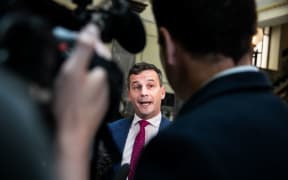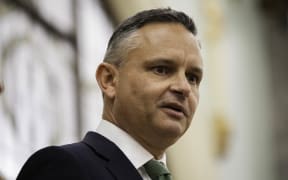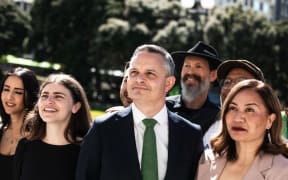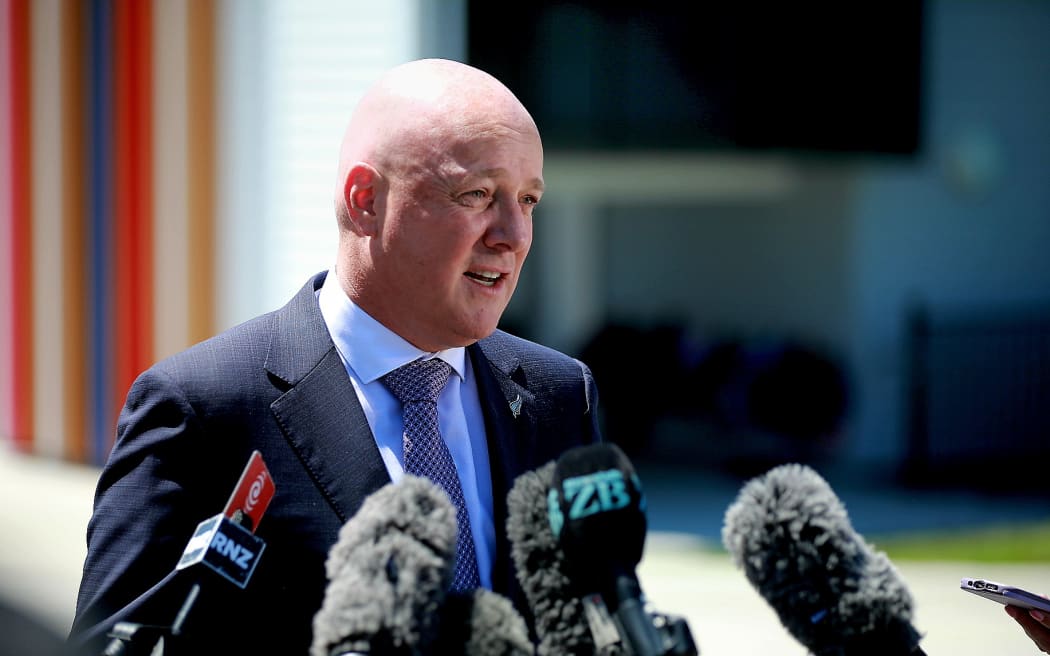
Prime Minister Christopher Luxon is questioned at a press conference on Thursday. Photo: RNZ / Nick Monro
Labour leader Chris Hipkins used Parliament's first question time this week to fish for any involvement tobacco companies might have had in the government's anti-smoking policies, RNZ reported.
He did not nail down Prime Minister Christopher Luxon, who said he was not responsible for the manifestos of coalition partners and then said he expected all ministers to comply with the Cabinet Manual and declare any conflicts of interest.
The questioning coincided with reports that public health experts were calling on the government to be totally transparent on any past or present dealings its MPs have had with tobacco companies.
Hipkins later said on Newshub's AM Show he did not have proof of any links but expected Luxon to find out whether there were any.
University of Otago academics Janet Hoek, Richard Edwards and Andrew Waa compared some of the statements made by ministers with submissions made by tobacco companies on smokefree policy, RNZ's report said.
Hoek said there were similarities in rhetoric. "We saw that some of those arguments are actually very similar … for example about rising crime or that illicit trade," she said.
The government cited rising crime and a tobacco black market when it gave its reasons for repealing the laws, passed by the previous government but not yet in effect.
Hoek said she wanted politicians to disclose whether they had any dealing with the tobacco lobby, saying a full and complete register of interactions should be made public.
The Herald reported extensively, with a front page headline on Thursday which read "Clear the Air".
It said Hoek said there appeared to be no popular support for the government's repeal of smokefree laws, which would have reduced the number of retailers selling tobacco, reduced nicotine levels in cigarettes and banned sales to anyone born after 2009.
Many of the smokefree measures were popular among National, ACT and NZ First voters, she claimed.
"So if they're not following the public mandate, then where are they getting the policy advice from?" she asked.
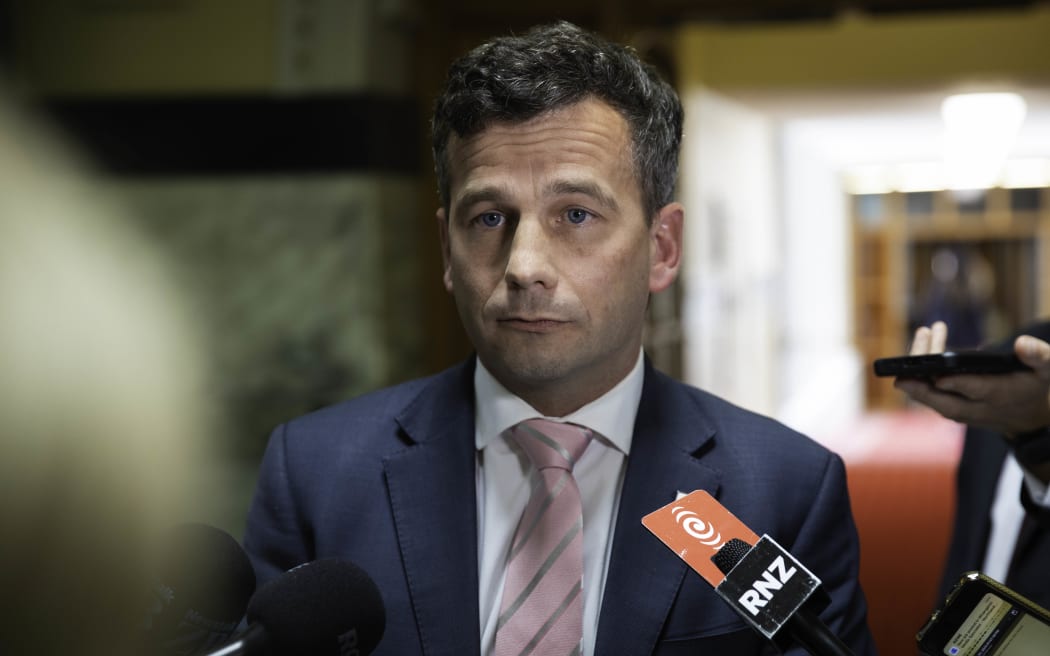
ACT Party leader David Seymour. Photo: RNZ / Angus Dreaver
Seymour heading to Waitangi
David Seymour confirmed this week he will attend Waitangi, where he will explain why he is bringing his Treaty Principles Bill to Parliament.
He could face a hostile reception, if Rātana was anything to go by, and Waitangi Day is usually a more political occasion.
The ACT leader has had plenty of experience explaining his bill, basically saying the treaty principles should unite the nation, not divide it. His critics argue that his bill is already creating division.
This is how he put it in his state of the nation speech last weekend, as reported by Newshub: "We're all New Zealanders with the same basic rights and with that platform constitutionally we can get stuck into tackling the real problems and challenges that New Zealanders face.
"He said in recent decades New Zealanders had been told that to solve these problems, New Zealand must become' Tiriti-centric' where there are two types of people in partnership - tangata whenua (people of the land) and tangata tiriti (treaty people) who would each have different political and legal rights."
Seymour said was not only untrue but "incompatible with the fundamental democratic value" that all citizens are equal under the law.
Luxon, meanwhile, has been distancing himself and National even further from Seymour's Bill.
He clearly does not want a bar of it and has appointed Seymour an associate justice minister with responsibility for the bill.
Government bills have to be presented to Parliament by a minister, and Luxon wants that minister to be Seymour.
He was asked about this in Parliament when it resumed sitting this week.
"If he has no intention of supporting the Treaty Principles Bill beyond select committee stage why has he appointed a new associate minister with specific responsibility for the bill?" asked Te Pāti Māori's Hana-Rawhiti Maipi-Clarke.
"So that the progress can be progressed," Luxon replied.
He was then asked whether he was attempting to distance himself from the division that "this attempt to erase Te Tiriti o Waitangi" had caused.
Luxon said he rejected the question. "We're not changing the Treaty of Waitangi, nor treaty settlements," he replied.
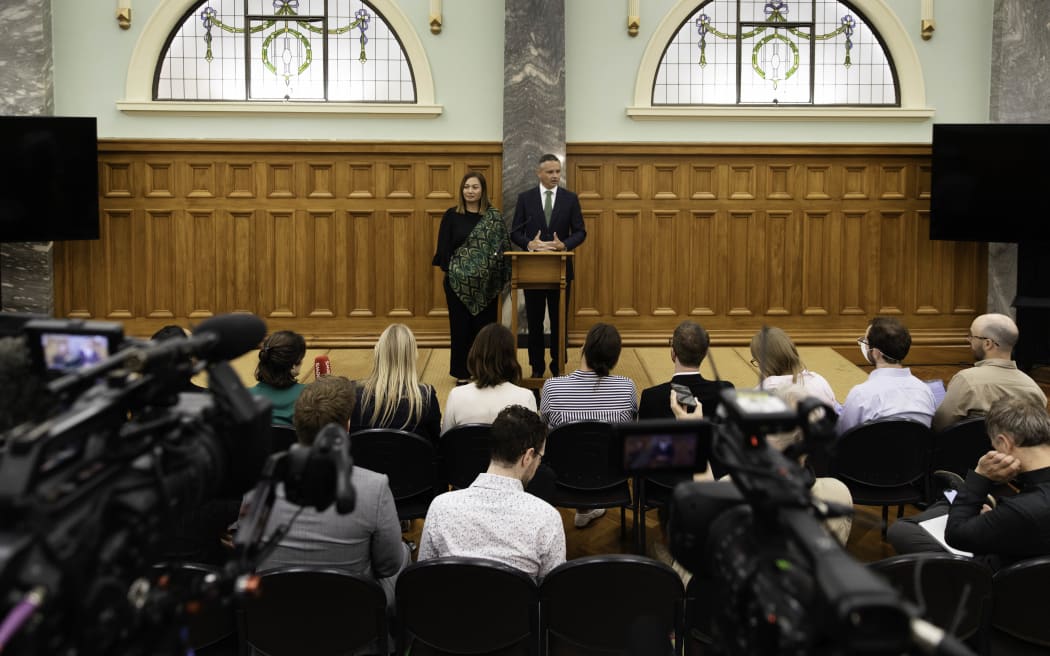
Green Party co-leader James Shaw announces his resignation. Photo: RNZ / Angus Dreaver
Shaw calls time as Greens co-leader
James Shaw called it quits as Green Party co-leader this week.
He said he would remain in Parliament to support his member's bill, which would insert a new clause in to the Bill of Rights Act stating that everyone has a right to a clean, healthy and sustainable environment.
It was introduced to Parliament in December but it yet to have its first reading.
Shaw came to Parliament as a list MP in 2014. He was climate change minister for six years and co-leader of the Greens for nearly nine.
No-one should be shocked by Shaw calling time given his repeated hints his commitment lasted on till he led the Greens "safely out the other side" of government, RNZ's Craig McCulloch said in his Power Play.
But the success of its 2023 campaign hid some serious vulnerabilities, he said.
The other co-leader, Marama Davidson, had refused to guarantee she would not step down before the next election, and while the Greens had their largest ever caucus of 15 MPs, it was also largely inexperienced.
"Shaw's clear signalling has given the party time to prepare something of a succession plan but there will inevitably be competing opinions within the caucus and wider membership about who should take over," he said.
"And although outsiders may regard Chlöe Swarbrick as the obvious successor, Shaw's own experience in the top job shows the membership can be an unpredictable bunch."
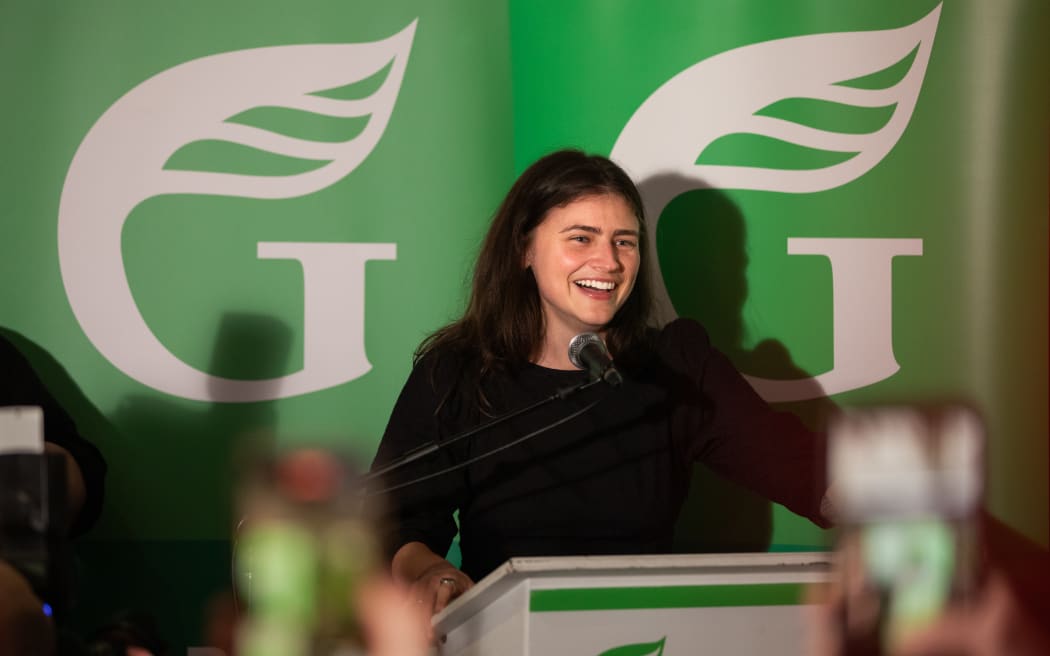
Green Party MP Chlöe Swarbrick. Photo: RNZ / Cole Eastham-Farrelly
Stuff's Tova O'Brien said Swarbrick was the only option.
"Swarbrick is fiercely intelligent, popular, passionate, has an enormous profile and stellar self-proclaimed 'woke' credentials befitting the Green co-leadership," she said.
"The dream scenario … within the party is a single Swarbrick ticket - the best and most unifying person for the job - running unopposed."
O'Brien also said the Greens were unpredictable.
Although Swarbrick is the clear favourite the selection process involves all party members and runs until March.
Shaw would not say who should take over but acknowledge Swarbrick was an heir apparent. "I think that should be obvious to pretty much anyone."
* Peter Wilson is a life member of Parliament's press gallery, 22 years as NZPA's political editor and seven as parliamentary bureau chief for NZ Newswire.


